< Back
20 Best Academic Sources Examples and How to Use Them For Your Next Research
Declan Gessel
Oct 3, 2024
Many students need help finding relevant and credible sources when tackling an academic paper. The problem intensifies if they need to meet a tight deadline. You may even wish for a quick fix to speed up the process.
While no magic wand will make academic research disappear, an AI can help you find sources for essay AI faster. This tool can locate reliable academic sources and provide examples of using them in your writing. I'll show you how to get started.
JotBot's source finder will help you find reliable academic sources to support your argument and get your paper back on track.
Table Of Contents
The Importance of Academic Sources

When writing a research paper or academic essay, use scholarly sources to solidify your argument and help you prove your thesis statement. Academic sources differ from popular or general-interest publications in their rigor and credibility. While educational and non-academic sources can help you understand a topic, only academic sources can provide the verifiable information necessary for credible research.
Related Reading
• How To Find Good Sources
• Using AI For Research
• Citing ChatGPT
• How To Find Academic Sources
• How To Cite AI In MLA
• AI For Research Paper Writing
• Essay Sources
• AI In Academic Writing
• Most Reliable Sources For Research
• How To Get ChatGPT To Cite Sources
Academic Sources Examples

1. Peer-Reviewed Journals
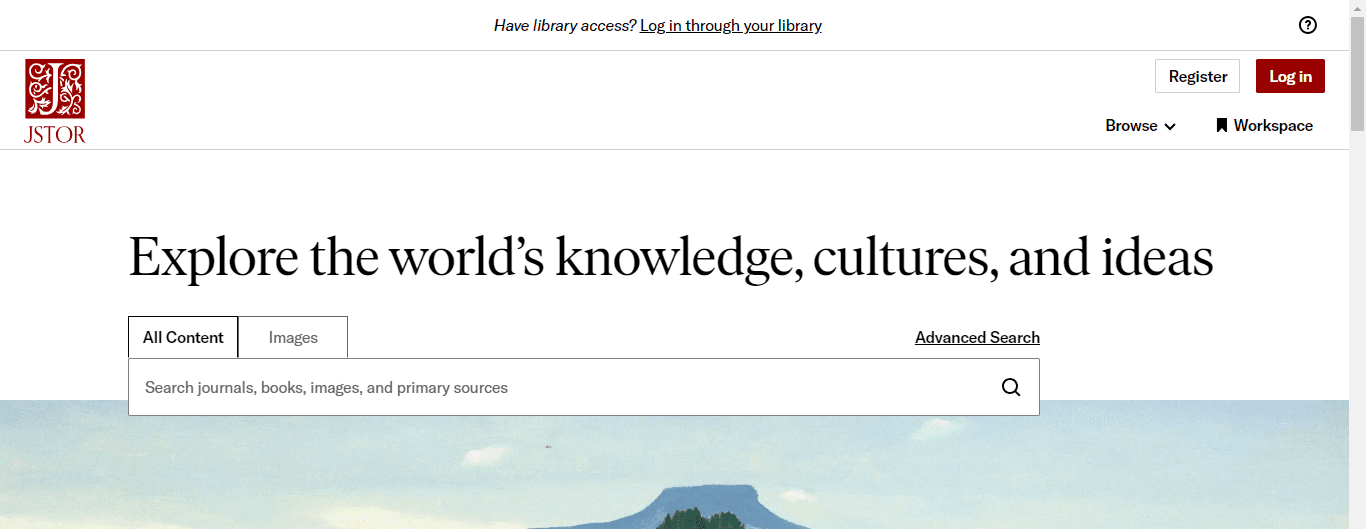
JSTOR is a reputable digital library that provides access to a wealth of academic journals, books, and primary sources. With a focus on arts, humanities, and social sciences, JSTOR is an excellent resource for comprehensive academic research. The platform is handy for literature reviews, historical research, and accessing original journal articles.
It’s important to note that JSTOR’s breadth of coverage can help you find reliable sources for nearly any topic. If you’re writing an academic paper, this is a go-to resource. To top it off, JSTOR has a citation tool that helps you automatically generate references in various citation styles.
Google Scholar: The Versatile Peer-Reviewed Source
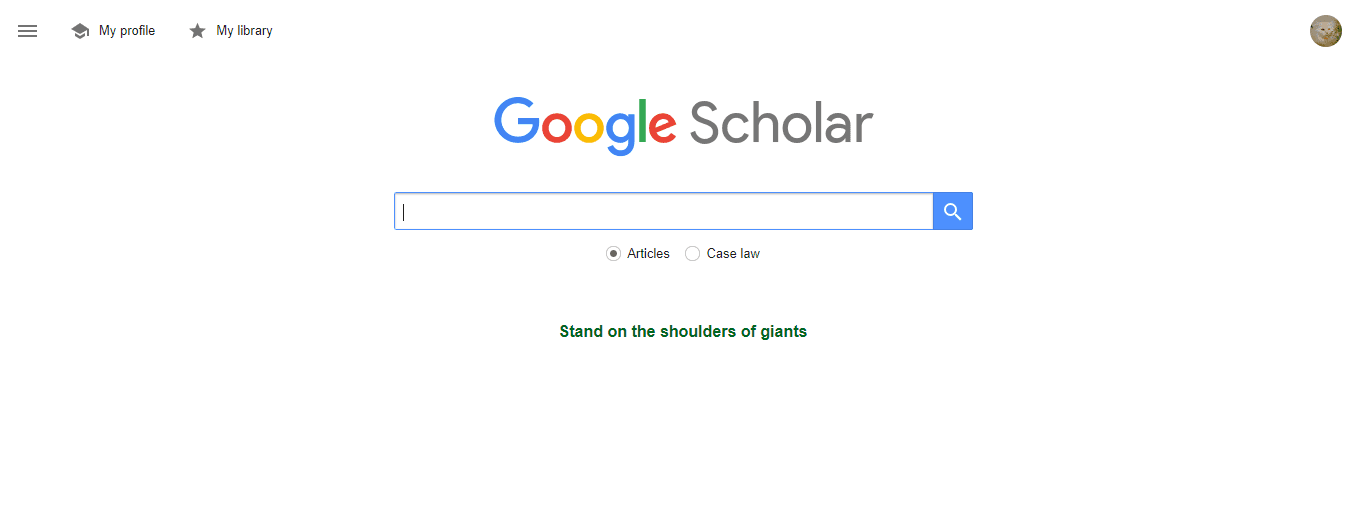
Google Scholar is a freely accessible web search engine that indexes scholarly articles from various disciplines. It pulls content from academic publishers, universities, and repositories, making it a versatile tool for researchers. Use Google Scholar to find citations and links to full-text journal articles. It's also helpful for discovering who has cited a particular article. Setting up Google Scholar alerts can also keep you updated on the latest research in your field of interest.
PubMed: The Best Source for Healthcare Research
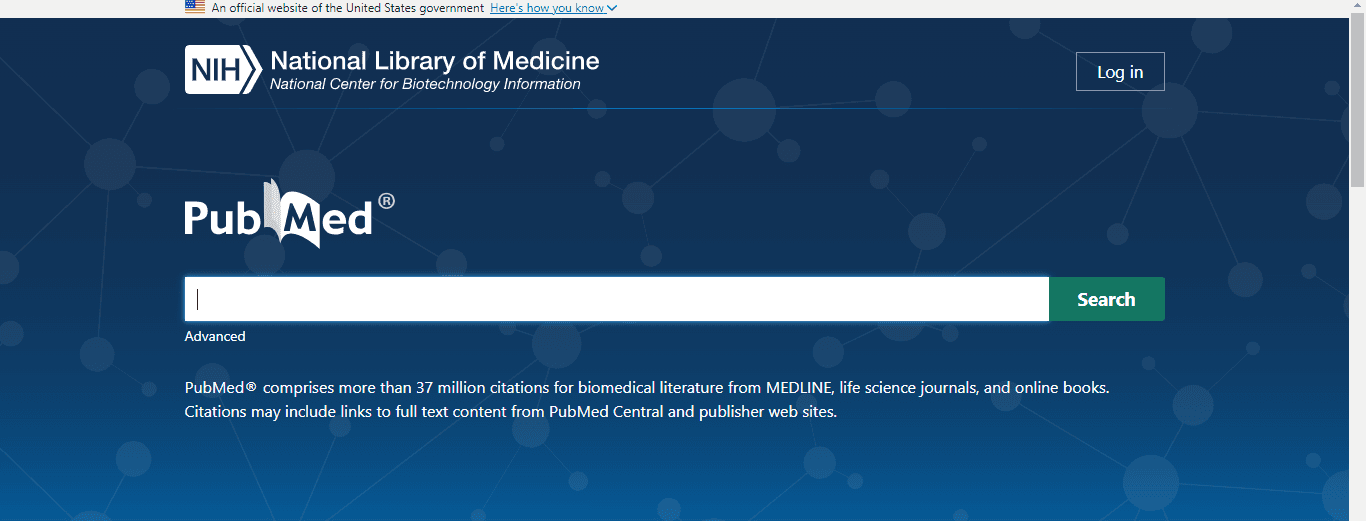
Specializing in life sciences, biomedical, and healthcare-related research, PubMed offers an extensive collection of journal articles related to health and medicine. It’s the go-to source for healthcare professionals and researchers. PubMed is best for accessing medical research, drug trials, and healthcare policy articles. When you arrive at PubMed, you can use filters to narrow your search based on article type, publication date, and access to full text.
ScienceDirect: Cutting-Edge Scientific Research
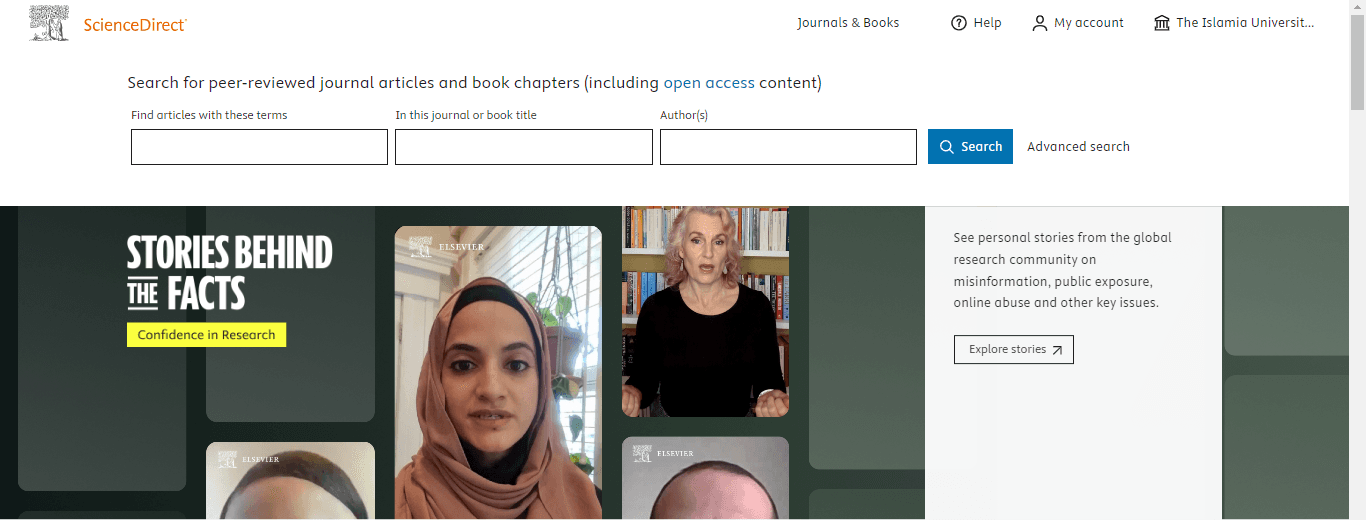
ScienceDirect is a significant repository for scientific and technical research articles. With fields ranging from engineering to environmental science, ScienceDirect offers some of the most authoritative sources in STEM fields. This database is best for cutting-edge research in scientific and technical disciplines. It also provides access to both full articles and abstracts. Check the reference lists of articles on ScienceDirect to find additional valuable sources.
SpringerLink: Academic Research Across Disciplines
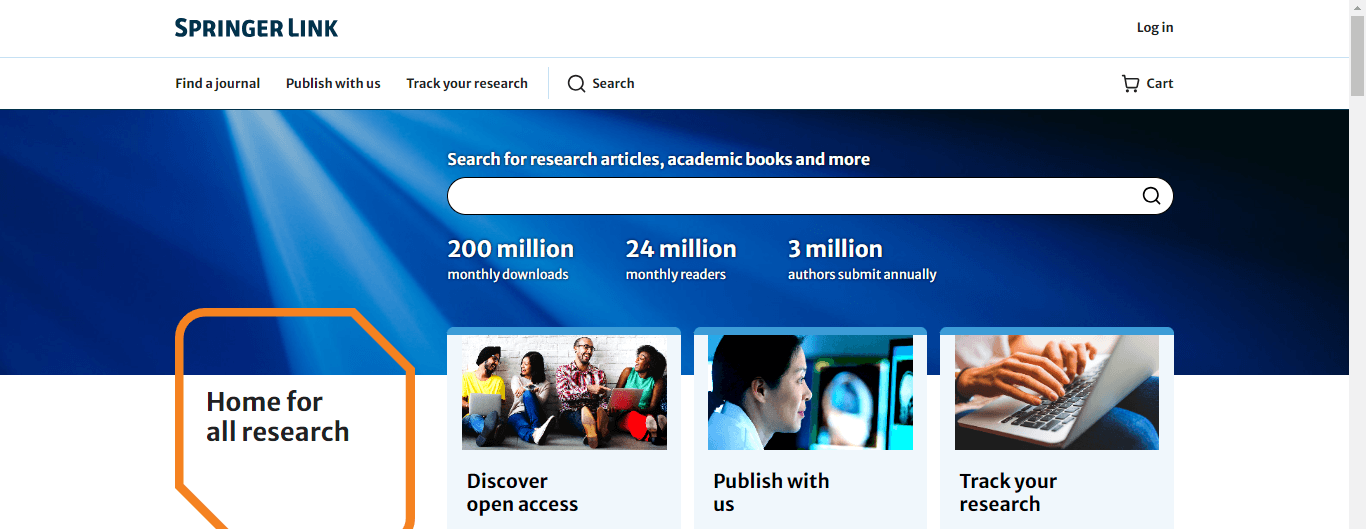
SpringerLink is an expansive platform offering academic books and journal articles covering many science, technology, and medicine fields. It is a reliable resource for both introductory and advanced-level research. SpringerLink is ideal for finding comprehensive research articles and accessing full academic textbooks. Use the advanced search options to filter results by subject, author, and publication year to find the most relevant material.
2. Books and Monographs
Google Books: A Researcher's Best Friend
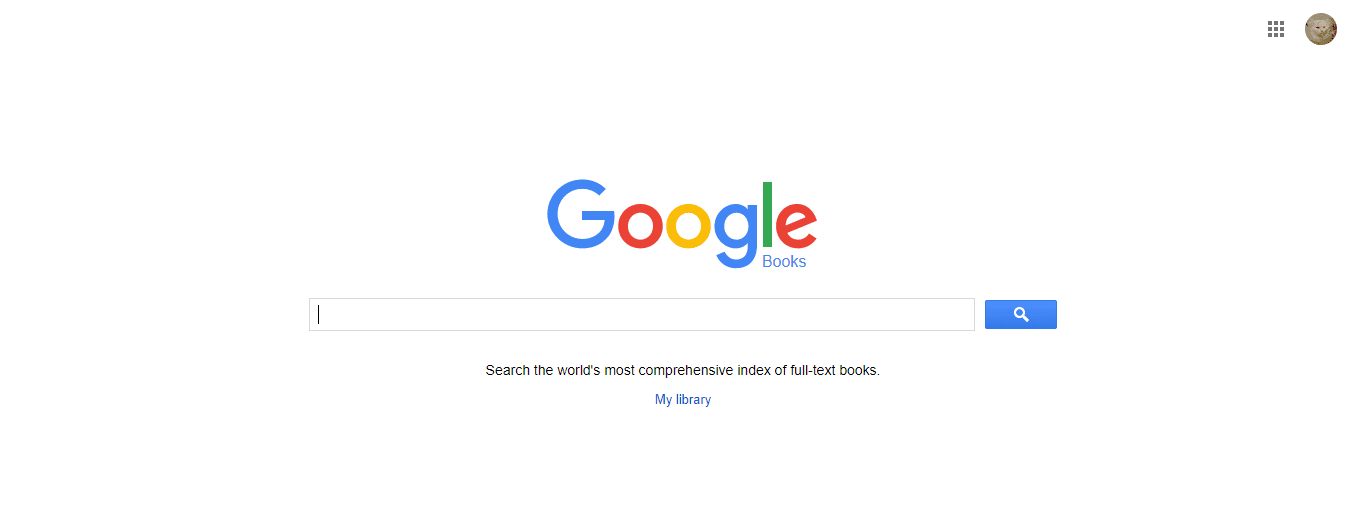
Google Books is a powerful tool that allows users to search the full text of books from various publishers and libraries. While not all books are fully available for free, many offer substantial previews that can be helpful for initial research.
Usage: Use Google Books to identify relevant texts and locate quotes or sections that pertain to your research. It's beneficial for historical and cultural studies.
Tip: Use the citation feature to generate proper references for any book you find quickly.
Project MUSE: The Go-To for Humanities & Social Sciences
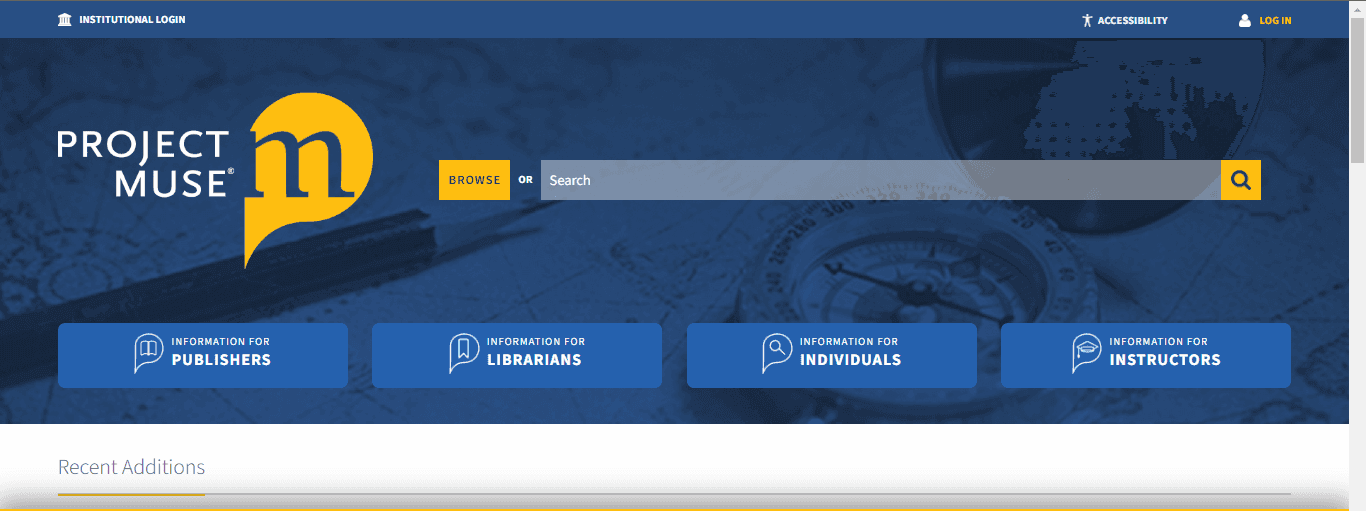
Project MUSE provides access to thousands of academic books and humanities and social sciences journals. It emphasizes quality and accessibility, ensuring users have access to high-quality content.
Usage: It's best suited for literary and cultural studies, making it ideal for researchers in those fields.
Tip: Explore the "Browse" feature to discover new books related to your study area.
Springer eBooks: Cutting-Edge Research at Your Fingertips
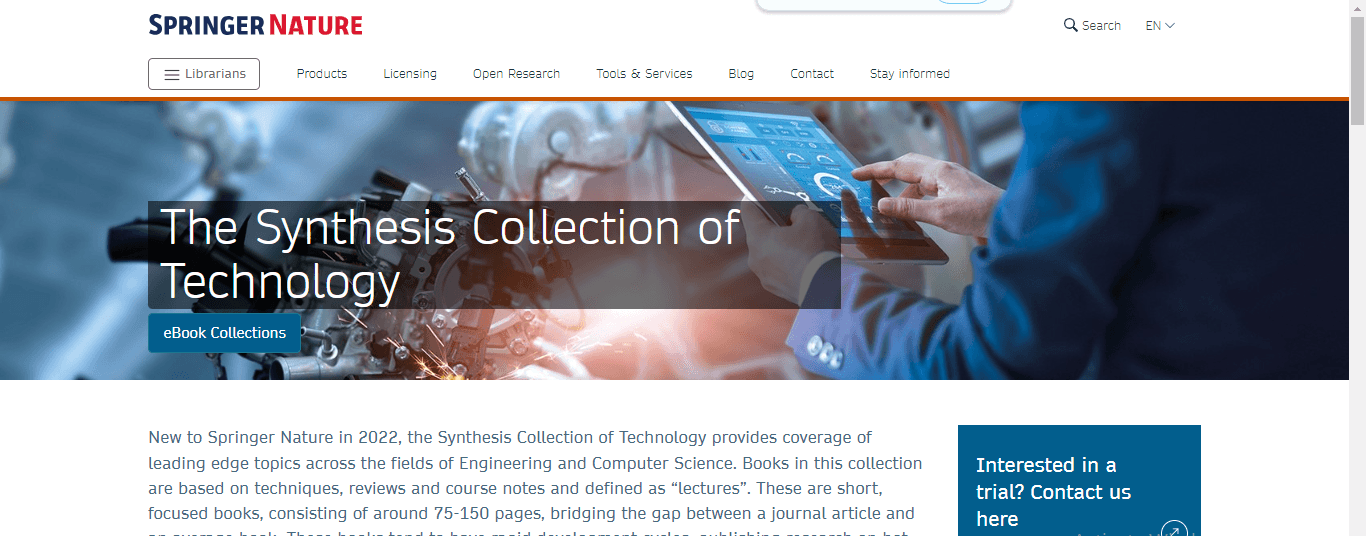
Springer offers a vast collection of eBooks covering a range of scientific and technical subjects. Leading experts often write their publications and provide cutting-edge research findings.
Usage: Use Springer eBooks for in-depth computer science, engineering, and natural science studies.
Tip: Check if your institution can access Springer's collections for free downloads.
Open Library: A Treasure Trove of Public Domain Works
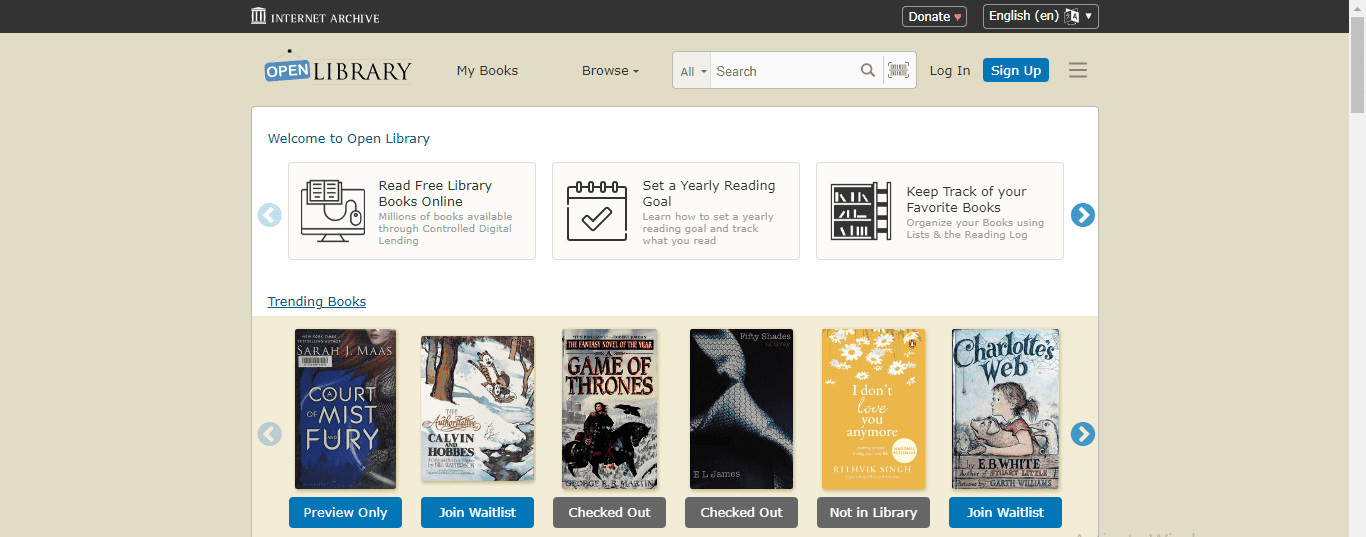
Open Library is an initiative of the Internet Archive that provides access to millions of books, many of which are in the public domain. It's a fantastic resource for finding historical texts and classic literature.
Usage: Open Library is especially useful for accessing older academic texts that may not be readily available elsewhere.
Tip: Use the "Borrow" feature to access books that are not in the public domain temporarily.
Wiley Online Library: Up-to-Date Research Across Disciplines
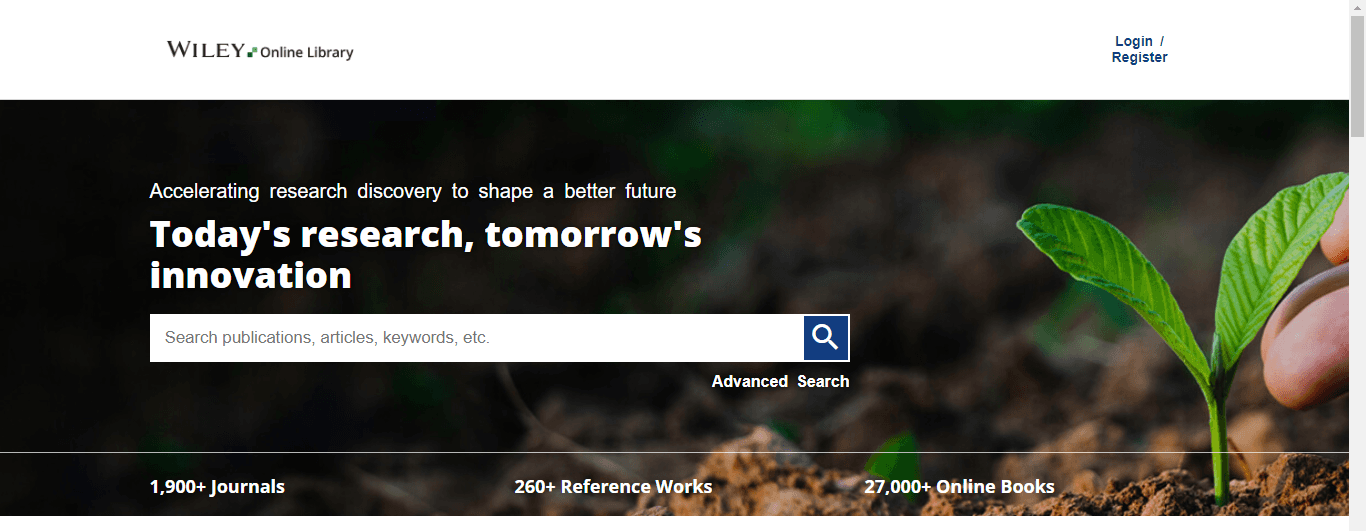
Wiley Online Library offers a vast collection of scholarly articles and books across various disciplines, strongly emphasizing the sciences and health fields. Its extensive database includes both current and archived materials.
Usage: It's excellent for up-to-date life sciences, engineering, and business research.
Tip: Use Wiley's advanced search to narrow results by discipline, publication date, and type of content.
3. Journal Articles and Conference Papers
Journal articles and conference papers represent some of the most current research findings in various fields. These sources are often peer-reviewed, ensuring credibility and scholarly rigor, essential for academic work.
Peer-Reviewed Journals: Your Best Bet For Academic Research
Peer-reviewed journals are a cornerstone of academic research. Articles published in these journals undergo a rigorous evaluation process by field experts, enhancing their reliability and validity.
Usage: Utilize peer-reviewed articles to provide evidence for your arguments, ensuring your claims are backed by credible research.
Tip: Use databases like JSTOR, PubMed, or Scopus to search for high-quality journal articles related to your research topic.
Conference Papers: The Latest Research Before It’s Published
Conference papers are presentations made at academic conferences. They often showcase the latest research findings before they are published in journals. They provide a glimpse into emerging trends and cutting-edge studies.
Usage: Leverage conference papers to stay updated on new developments and theories that may still need to be widely published.
Tip: Attend academic conferences in your field or access their proceedings to find relevant papers.
Google Scholar: An Academic Search Engine For Everybody
Google Scholar is a freely accessible search engine that indexes scholarly articles across various disciplines. It’s an excellent tool for discovering academic sources, including theses, books, and conference papers.
Usage: Use Google Scholar to find peer-reviewed articles and preprints, making it a versatile tool for research.
Tip: Set up alerts for specific keywords to receive notifications about new publications in your area of interest.
PubMed Central: Your Go-To for Life Sciences Research
PubMed Central (PMC) is an accessible digital repository that archives biomedical and life sciences journal literature. It’s a valuable resource for researchers in the health and medical fields.
Usage: Use PMC to access full-text articles in the life sciences, ensuring you can reference the latest research in these areas.
Tip: Explore PMC’s “Journals” section for a comprehensive list of available publications.
IEEE Xplore: An Engineering and Technology Powerhouse
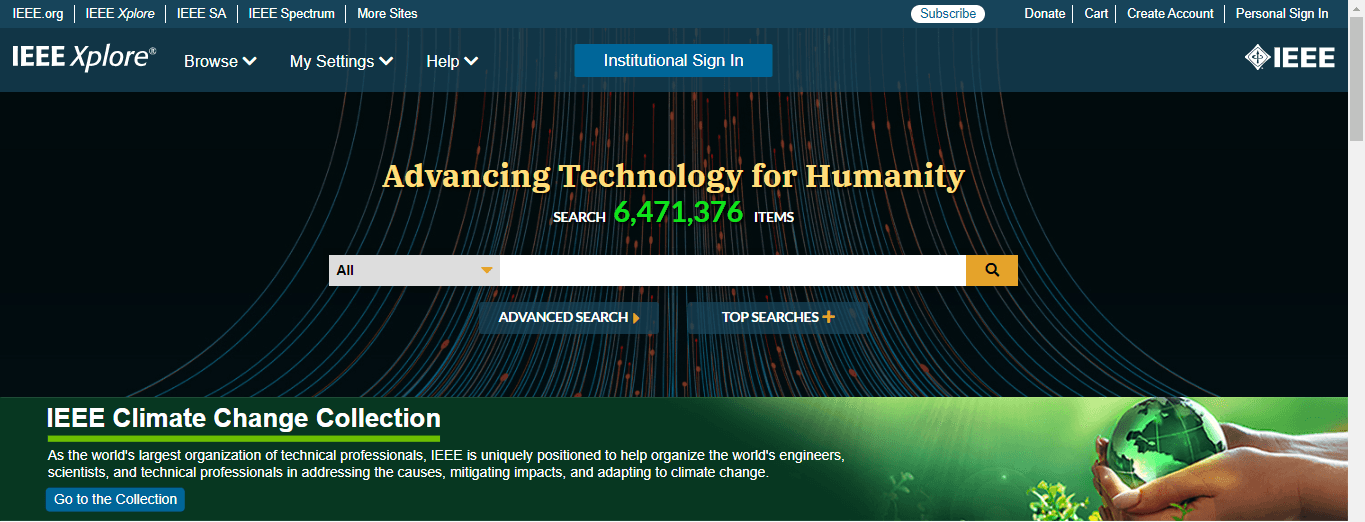
IEEE Xplore provides access to vast literature in engineering and technology. It includes journals, conferences, and standards published by the IEEE and IET.
Usage: It benefits engineering and technology research, providing access to cutting-edge studies and innovations.
Tip: Utilize IEEE Xplore’s advanced search features to refine your results based on specific criteria, such as publication year or document type.
4. Books and Government Publications
Academic books provide thorough discussions of specific topics, theories, and methodologies. They often compile research from various authors and include extensive bibliographies. For instance, The Handbook of Communication Science, published by the prestigious academic publisher Routledge, offers comprehensive coverage of communication theory, research methods, and various communication subfields.
Edited by Nobel Prize winner William D. Nordhaus, textbooks like this are excellent resources for finding established communication theories for your research. Use academic books to understand your research area better and reference established theories and frameworks. University libraries or platforms like Google Books can be excellent resources for finding relevant scholarly literature.
Textbooks: Get the Basics Down First
Textbooks are designed to educate and provide foundational knowledge in specific subjects. While they may not always be cutting-edge, they offer valuable summaries of key concepts and theories. For example, An Introduction to Communication Studies provides an overview of the major theories and approaches in communication.
Starting with textbooks like this can help ground your understanding of communication before diving into more advanced research—reference textbooks to explain fundamental principles related to your research topic. Check the latest editions to ensure the information is current and relevant.
Government Reports: Reliable, Data-Driven Insights
Government reports are official documents published by government agencies. They often provide statistical data, policy analyses, and regulatory information relevant to various fields. For example, the U.S. Census Bureau publishes annual reports on income and poverty in the United States.
These reports summarize data collected from the American Community Survey, providing insights on how income and poverty levels change over time and by demographic characteristics. Use these reports to support claims with credible data and insights, particularly in public policy or social sciences research. Explore government websites, such as USA.gov, or specific agency sites to find pertinent reports.
Theses and Dissertations: Unlock New Research Angles
Theses and dissertations are extensive research projects conducted by graduate students. They can offer unique insights into specific topics and often include comprehensive literature reviews. For instance, if you’re studying the effects of social media on mental health, you might find a dissertation that explores a similar angle.
Like how social media affects adolescents' mental health, utilizing this document can help you discover new research angles, review extensive bibliographies that can guide your sourcing, and access databases like ProQuest Dissertations & Theses for a vast repository of academic theses.
Online Libraries and Repositories: Find Hard-to-Access Sources
Digital libraries, such as Project Gutenberg or the Internet Archive, provide access to many books, including historical texts and academic literature. For instance, if you’re studying the works of early communication theorists like Harold D. Lasswell or Walter Lippmann, you might find primary source material in an online repository. These materials can be invaluable for finding hard-to-access sources or including classical works in your research. Use advanced search options to narrow down to the most relevant materials for your study.
Start Writing for Free Today With Jotbot
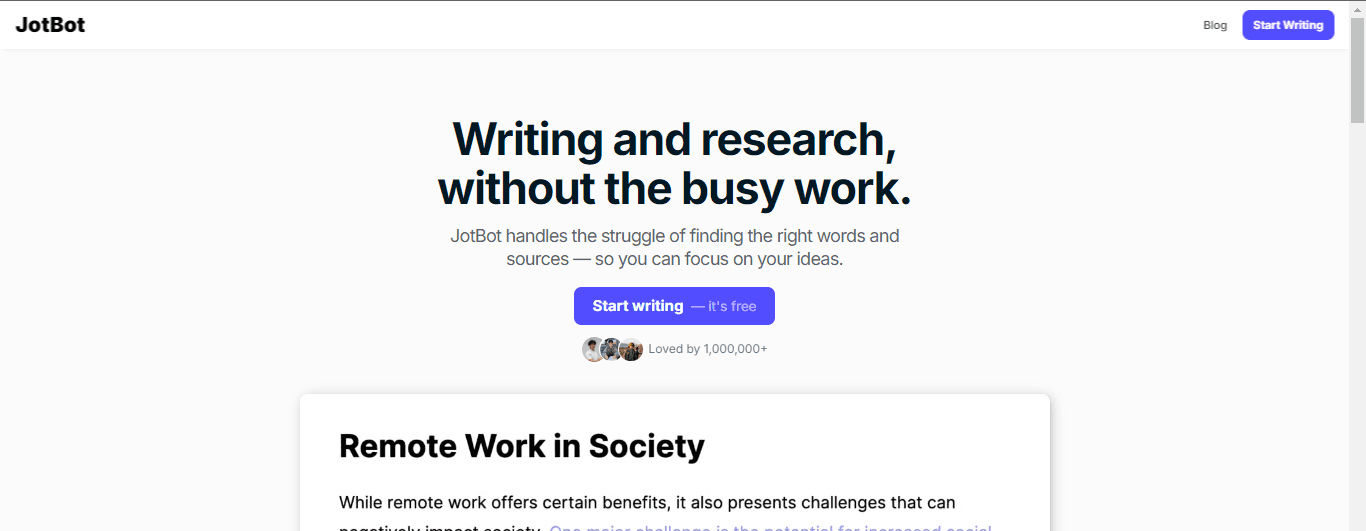
Integrating books and government publications into your research ensures a more robust and well-rounded scholarly approach. Jotbot is your personal document assistant and source finder. Jotbot does AI note-taking, AI video summarizing, AI citation/source finder, writes AI outlines for essays, and even writes entire essays with Jotbot’s AI essay writer.
Join 500,000+ writers, students, teams, and researchers worldwide to write more, write better, and write faster with Jotbot's AI writing assistant. Write more brilliantly, not harder, with Jotbot's AI writing assistant. Start finding sources for free with Jotbot's source finder today. Sign in with Google and get started in seconds.
How Jotbot Enhances Your Research Process

Research Made Easy: Jotbot's Streamlined Note-Taking
Jotbot’s AI-powered note-taking feature revolutionizes how users capture and organize their research information. Unlike traditional methods that can be time-consuming and inefficient, Jotbot allows users to take structured notes effortlessly during lectures, meetings, or while reading academic papers.
The primary advantage of using Jotbot for note-taking is its ability to summarize and highlight key points, enhancing the information's clarity and usability. This is particularly beneficial for students and researchers who manage information from various sources. For instance, when preparing for a research project, users can quickly compile essential details, making reviewing and integrating data into their work more manageable.
Consider a student attending a lecture where multiple complex concepts are discussed. Instead of frantically writing everything down, they can use Jotbot to capture the main ideas and insights. Later, when studying for exams or writing papers, they have organized notes that directly address the topics discussed, complete with essential details highlighted for easy reference.
Say Goodbye to Citation Headaches with Jotbot's AI-Powered Citation and Source Finding
Jotbot excels in helping users find and cite academic sources efficiently through its AI-powered citation/source finder. This tool can quickly search academic databases and provide relevant sources aligned with a user's topic of interest. This feature saves time and ensures citation accuracy, which is critical for maintaining academic integrity.
Jotbot formats citations in various styles, such as APA, MLA, or Chicago, allowing users to focus on content rather than citation mechanics. For example, when writing a research paper on climate change, Jotbot can suggest relevant articles, studies, and papers published on the topic. It retrieves these sources swiftly, formats them correctly, and allows users to integrate them into their work without the hassle of manually searching through academic journals or databases.
Jotbot Makes Research and Writing a Seamless Process
Beyond note-taking and citation, Jotbot’s capabilities extend to writing assistance. Users can draft essays and outlines based on their notes and sources, creating a seamless workflow from gathering information to producing a final document.
A study by Educause Review notes that technology-enhanced learning tools, like Jotbot, contribute significantly to improved research efficiency and academic performance among students. Using Jotbot, users can engage more deeply with their research, leading to more insightful analysis and higher-quality outputs.
User-Friendly Technology for All Types of Students
Research from TechSmith highlights that adaptable technology can lead to better educational outcomes. Jotbot’s intuitive interface and AI features empower users of all skill levels, from novice students to experienced researchers, to utilize its tools effectively. By emphasizing these aspects, it’s clear that Jotbot significantly enhances the research process through its efficient note-taking and citation capabilities, which are essential for students, professionals, and researchers.
Related Reading
• Best AI Tool For Research
• Reference Finder
• Best AI For Research
• How to Cite AI
• AI For Literature Review
• Websites Like Google Scholar
• AI That Cites Sources
• Best Academic Search Engines
• Academic Research Software
• How To Use Chat GPT For Research
• Best Research Tools For Students
Write Smarter With Jotbot's Source Finder — Start Writing for Free Today
Jotbot is your personal document assistant and source finder. Jotbot does AI note-taking, AI video summarizing, and AI citation/source finder; it writes AI outlines for essays and even writes entire essays with Jotbot’s AI essay writer. Join 500,000+ writers, students, teams, and researchers worldwide to write more, write better, and write faster with Jotbot's AI writing assistant.
Related Reading
• Scholarly Sources Examples
• Sourcely
• AI Research Tools
• Elicit AI
• Scisummary
• Scholarcy AI
• Consensus AI Tool
• Mendeley Alternatives
• Cite This For Me Alternative
• How to Find Scholarly Sources
• List of Scholarly Sources
• Examples of Peer Reviewed Sources
• How to Cite a Book
• How to Cite an Article
• How to Cite
• How to Cite a PDF
• How to Cite Multiple Authors MLA
• How to Cite a Website in Text
• How to Cite a Lecture
• How to Cite ChatGPT
Write more, better, faster.
Your personal AI document assistant












